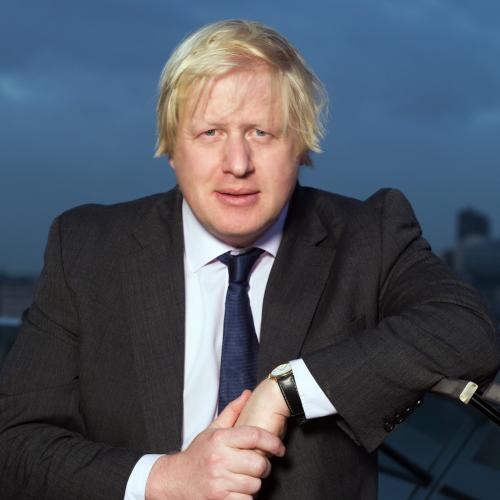Charles Kennedy – 2000 Speech on the EU and the Euro
Below is the text of the speech made by Charles Kennedy, the then Leader of the Liberal Democrats, in Brussels on 5 December 2000.
Ladies and Gentlemen, I am delighted to be able to be here today to talk about Britain’s role in the EU and the case for the Single Currency.
So much of the discourse about Europe or the Euro in Britain is characterised by scare stories and misinformation that it is scarcely possible to have a serious debate on the issues any more. Any positive news stories about the benefits of EU membership or the virtues of the Single Currency tend to be subverted by the sceptical British press in favour of scare stories about straight bananas or the fact that the European Union flag will fly alongside the Union Jack over Downing Street for one day this year to mark our membership of the EU.
You would think from the hysterical reaction in one particular Sunday newspaper a couple of days ago to that story that we weren’t actually members of the European Union at all. It is becoming more and more necessary in Britain for those of us who support Britain’s membership of the European Union and think that a successful Single Currency will yield benefits for British businesses, and British workers, and British consumers to go out and make the case for them both time and time again.
The Liberal Democrats are strong advocates of the European Union. Let us not forget the dream of the original members of what is now the EU. It was that a degree of economic and political integration would bring co-operation and, more importantly, peace and stability to Western Europe, which had been notably absent for centuries.
Having, most of us, grown up in the last fifty years it is perhaps easy to underestimate the degree to which the European Union has been the cause and the guarantor of that peace. The longest continual period of peace in Western Europe since Roman times. Membership of the European Union also gives Britain more power and influence than if we were a nation alone.
Look at the example of British beef and the BSE crisis. The United States has banned the import of British beef for a number of years. and we have absolutely no power to stop them. Yet France also maintains an unwarranted ban on our beef. The difference is that in this case, we are able to complain to the European Union who are now taking legal steps to force the French to lift this unnecessary and unacceptable ban.
Indeed, given the current fears over the safety beef produced in other EU countries, notably France, I find it hard to understand any justification for the French action. Measures must be taken speedily to reassure public opinion as to the safety of beef in the EU, so as not to undermine confidence in beef produced in this country. I want to see nothing less than a total EU-wide ban on all cattle over 30-months old entering the food-chain. The European Union must provide 100 per cent compensation to farmers for destroying cattle of that age.
The EU must not shy away from taking the strong action necessary to ensure public safety and reassure public opinion. Membership of the European Union gives us the leverage to fight for this to happen. If we were not members our calls would mean nothing.
In a wider sense, Britain’s place in the world order has changed dramatically, in the years since we joined what was then the Common Market. Britain is now a stronger trading nation than at any time since World War Two.
In the years since 1973, our trade has increased by 138%. More than half of British trade now is actually with other EU countries. In 1999, the value of Britain’s trade with the EU approached £350 billion. Almost a tenth of that was with Belgium. As businessmen and women, you will know how easily levels of trade are affected by tariffs, barriers to entry, and exchange rate fluctuations.
So long as we are members of the European Union we will enjoy the benefits of a common market. But if we remain outside of the Single Currency we remain open to the damage that an unstable and high exchange rate can do to our exporters and to inward investment in Britain. The high pound has already been doing serious damage to our manufacturing industry and exporters in recent years. If this were to be perpetuated in the future it could have a seriously adverse impact on Britain as a trading nation.
The Liberal Democrats have not been alone in arguing this case. But we have perhaps been the most consistent. The Prime Minister, for example, probably shares this view. Although some of his ministers, including the Chancellor, may not. But he is timid when it comes to discussing the benefits of joining a successful Single Currency, preferring to hide behind a series of utterly subjective economic tests laid down by Gordon Brown. They are a fig leaf to hide the Government’s indecision.
Yet, I believe people need the British Government to take a lead, more than ever, on the issue of the Single Currency. To give them the certainty they need to plan their businesses or to give them the certainty that their job is secure.
It is important also to take heed of the views of those in business and industry when looking at the case for or against the Euro. Over the course of the last year, numerous big hitters in business have spoken out in favour of Britain joining a successful Single Currency. Richard Branson, for example, has let it be known that he is increasingly concerned about our non-membership. Earlier this year he wrote: “Outside the Euro we will be much poorer both as a nation and as individuals.” A month later, the President of the Japanese electronics giant Matsushita spoke out of his concerns that Britain had still not made a commitment to join the Euro. “The immediate question is when the pound will be included in the Euro” he said. “If Britain does nothing to solve the problem, foreign companies, regardless of whether they are Japanese American, or whatever nationality, may exit the country.”
These words should be heard by all politicians when deciding whether we should join the Single Currency. But I readily accept that this issue cannot, and should not, just be decided on economic grounds. There are constitutional implications to consider also. That is why the Liberal Democrats were the first major political party to call for a referendum on this issue. To call for the British people to have the final say on whether to adopt the Euro.
All I ask is that the public are given all the information on the pros and cons of membership in order to make an informed decision when the times comes, rather than being fed a diet of half-truths, exaggeration and plain hysteria as is the case all too often at present. The British people deserve nothing less than the whole truth.


